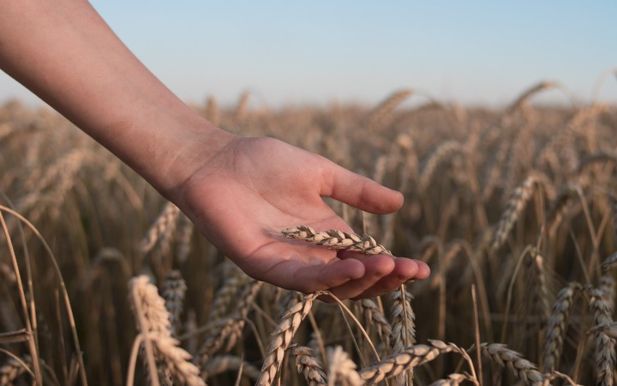Birmingham, United Kingdom
April 20, 2021

The worldwide adoption of biotechnologies to improve crop production has stalled, putting global food security at risk, according to an international team of researchers led by the University of Birmingham.
The group, which includes economists, plant breeders and plant scientists, is calling on governments worldwide to put in place policies and regulations that will drive progress in this area.
In an article published in the 25th anniversary edition of Trends in Plant Science, the group, composed of researchers from Australia, Canada and India, also argue that societal acceptance of technologies such as gene editing is a big barrier to adoption. They urge the scientific community to work harder to convince the public and governments of the value of adopting plant breeding technologies to combat the challenges of climate change and improve crop resilience.
Professor Christine Foyer, of the School of Biosciences at the University of Birmingham, says: “Plant science has advanced rapidly over the past 25 years. Adopting these new technologies would enable us to make huge advances in reducing agricultural emissions, improving agricultural sustainability and productivity and increasing the nutritional value of plants.
“Despite this, public acceptance has been slow. This is partly because the benefits are not sufficiently widely recognised, and partly because of historic fears and misconceptions around genetically modified plants. Learning from the harsh lessons of past failures, plant scientists must now be advocates for their achievements in order to gain public confidence in new and emerging technologies.”
Dr Sven Anders of the University of Alberta, Canada, agreed that plant scientists must play a greater role in the public debate to gain public confidence in gene-editing and become involved in advocacy and increasing public awareness.
“Harmonised global regulations of new technology is essential for new technologies to contribute to future food security,” Dr Anders said.
Professor Wallace Cowling, from the University of Western Australia, added: “Future food security depends on accelerating crop genetic improvement using all sources of valuable genes – from new technology or from wild and landrace relatives.
“Breeding for complex traits, such as heat or drought tolerance, will require optimised breeding strategies in a more rapid and sustainable form of plant breeding. Modelling suggests that we can keep pace with climate change and improve crop yields long into the future if we integrate genes derived from biotechnology into improved breeding schemes.”
Additional authors include Dr Ashwani Pareek, from the National Agri-Food Biotechnology Institute India, Dr Kapuganti Jagadis Gupta from the National Institute of Plant Genome Research, India, and Dr Sneh L Singla-Pareek from the International Centre for Genetic Engineering and Biotechnology, India.
Notes for editors:
- For media enquiries please contact Beck Lockwood, Press Office, University of Birmingham, tel: +44 (0)781 3343348.
- The University of Birmingham is ranked amongst the world’s top 100 institutions. Its work brings people from across the world to Birmingham, including researchers, teachers and more than 6,500 international students from over 150 countries.
- Foyer et al (2021). ‘The Gap between Plant Science Advances and Society’. Trends in Plant Science.